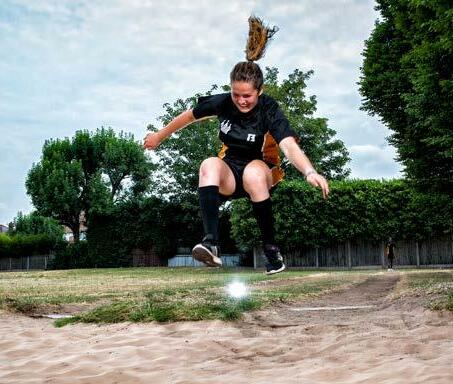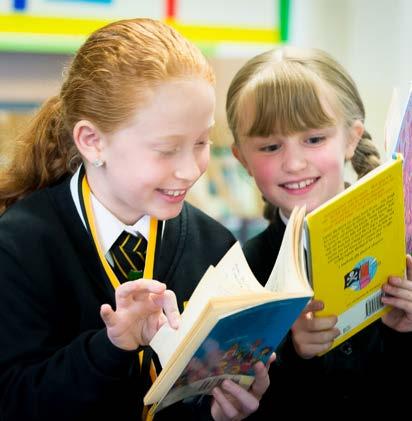
5 minute read
Weaving ASPIRE into Teaching and Learning
Character
I am
respectful
responsible
resilient
creative
compassionate
courageous
Academic and Personal Potential Learner skills
I can
be organised
become unstuck
self-quiz
give and receive feedback
be collaborative
communicate clearly
Introduction
As a trust family, we want every learner to believe that they can be all and more than they ever thought they could be; and know what their future self looks like when they have realised their academic and personal potential.
Students need to see what the view from the top of their personal mountain looks like. Research tells us (Quaglia Institute for Student Aspirations) that people who have clear aspirations for their future (personally and academically) are eight times more likely to be motivated and engaged in their learning in the present.

We know from the pandemic that the students who thrived in the remote environment were able to self-regulate. By this we mean they were able to take responsibility for their learning and they knew what to do when they didn’t know what to do. We want all our young people to be able to ASPIRE so that they can self-regulate, thrive and be equipped to bounce back from failure. In the words of John Hattie, “selfregulation needs to be taught rather than presumed”.
Our students have been introduced to the evolved concept of ASPIRE through assemblies and form time. They are seeing
All the international research indicates that ASPIRE is best taught within the curriculum. As Michael Young puts it, ‘it is a serious error to assume that skills can be taught independently of knowledge’. The ASPIRE learner skills and character virtues are interdependent. Each learning skill tests a student’s character virtues. For example, giving feedback to a peer is a test of a student’s respect, courage and compassion; to become unstuck is a test of resilience and courage; or to communicate clearly can be a test of one’s courage and creativity. The ASPIRE learning skills and knowledge display a complex interplay as pupils learn. it branded everywhere in their schools and they have completed their ASPIRE sentence which enables them to believe they can unlock their academic and personal potential if they take action in the present. We are intentionally over communicating ASPIRE to our students so that it becomes, as Rita Pearson would say, “a part of them”.
As educators we have the privileged role to guide our students up the mountain and give them the ropes of character, powerful knowledge and skills so that they will reach the summit and do so at a faster pace, becoming all and more than they thought they would be.
What is the connection between character, knowledge and learning skills?
Let’s consider this example
A student can use planning strategies when drafting a structure for a GCSE essay about Shakespeare. But without an understanding of Shakespeare’s plays, knowledge of language, and the relevant social context, the essay will not be successful.

Students cannot apply what they don’t know. Knowledge and learning skills support each other and so need to be taught concurrently. Crucially, learning skills do not stand alone from our curriculum. They should be woven into learning as an intrinsic part of how we upskill students to connect with knowledge at a deeper level.
In a nutshell, the ASPIRE learning skills help students to self-regulate so that they can learn better, learn more deeply and remember more.
What is the evidence-base for ASPIRE?
There is extensive international evidence that concludes that character and learning skills are powerful drivers of student progress:

John Hattie’s visible learning research which involved 25 years of looking at the variables that have the greatest impact on student achievement (1600 meta-analyses comprising 96,000 studies involving 300 million students form all over the world) offers strong measures to validate that teaching students to be independent, to be equipped with learning strategies to support them to self-regulate can have an effect size of 0.6 plus.
The EEF’s systematic evidence reviews indicate that metacognitive strategies have large positive impact, on average providing an additional seven months progress.
‘Self-regulation and learning to learn were key determinants of student motivation, engagement and success’ during remote education
(Fullan 2020 Education Reimagined) Dunlosky’s research on study strategies identifies the metacognitive strategies such as practice testing and interleaving as the most powerful strategies for retention of knowledge
The Jubilee Centre for Character and Virtues identifies four virtue categories: intellectual virtue, moral virtue, civic virtue and performance virtue.
These categories are mutually influential towards an individual’s ability to flourish personally and academically; emphasis must be placed on the application of all, not one. The six ASPIRE Character Virtues embody these four virtue categories.
The EEF makes a definitive link between the mindsets of students and their success as they learn. This includes a student’s ability ‘to respond to setbacks, work well with others, build relationships, manage emotions, and cope with difficult situations’.
Again, all the research concludes that learning skills are best taught within the curriculum and that character can be taught as well as sought and caught.
What about evidence-informed wisdom?
We know from our own unique experience during remote education that the students who made the greatest progress were able to selfregulate and ASPIRE because they had the motivation, character and skills to do so. And this is why we are shining the light on ASPIRE.
Teaching remotely was probably one of the greatest tests of our own character and skills set as a profession. In December 2019, could we have imagined that we would be teaching our classes live from home using dual screening? We are emerging from Covid-19 with a collective sense of pride in our profession as a result of the high quality remote education that we delivered to our students. We ASPIRED as teachers and we are proud of the impact that we had on our students as a result of our high expectations and high aspirations. We reached the summit ourselves!
As we emerge stronger as a family, let us be intentional about teaching our students to ASPIRE in learning whilst leveraging technology to help them to power their way to the summit.




